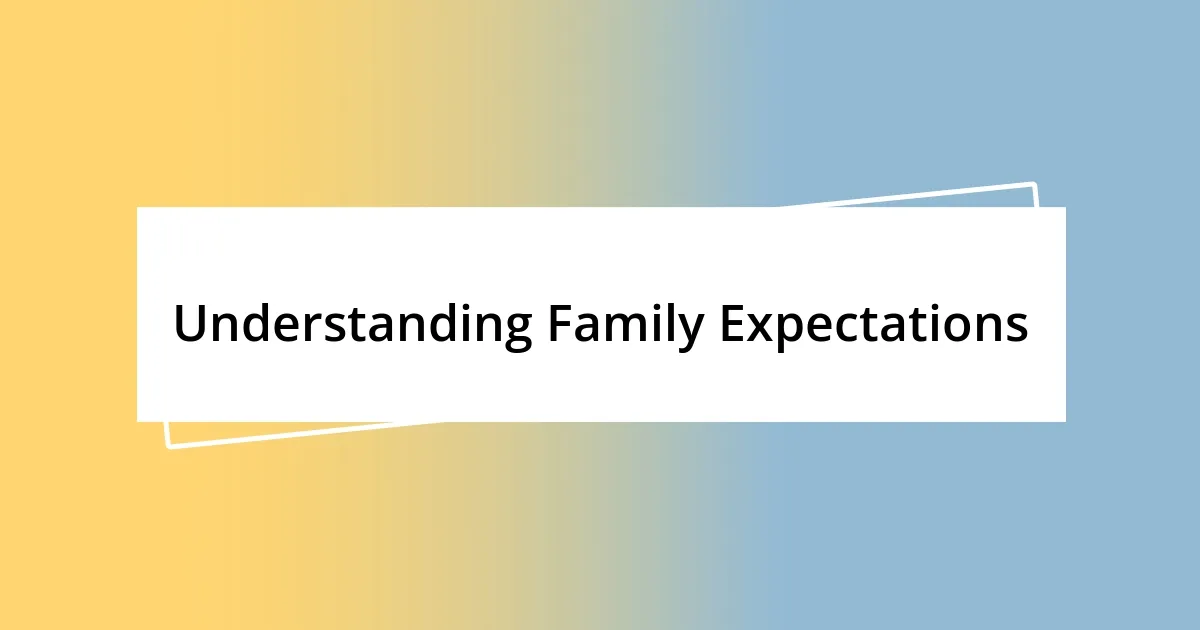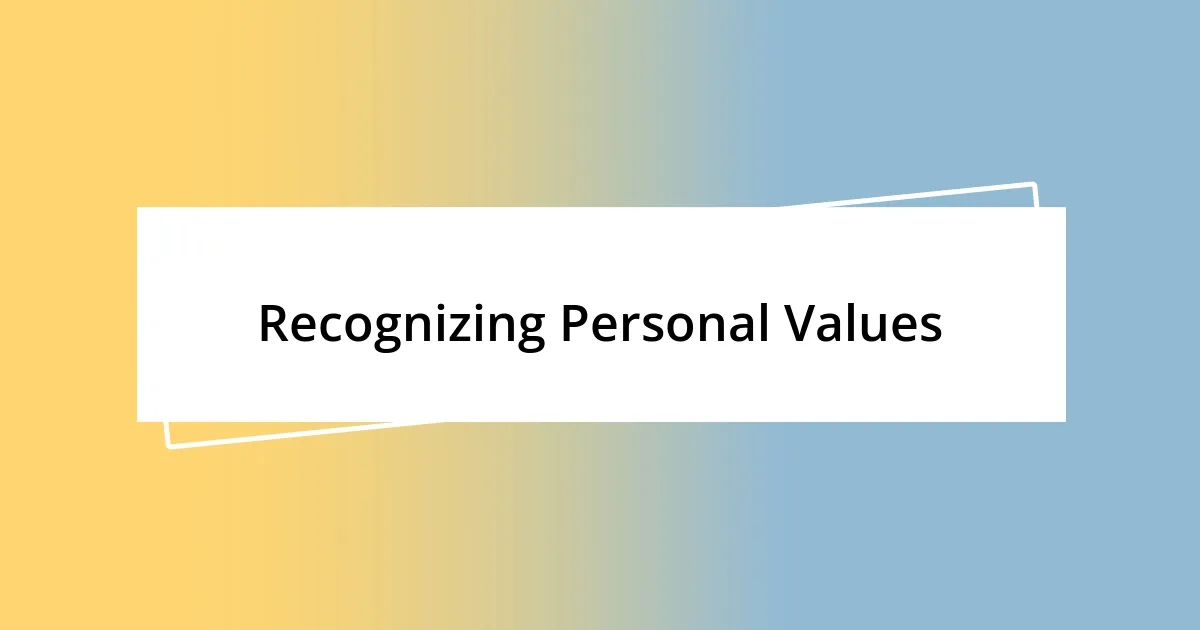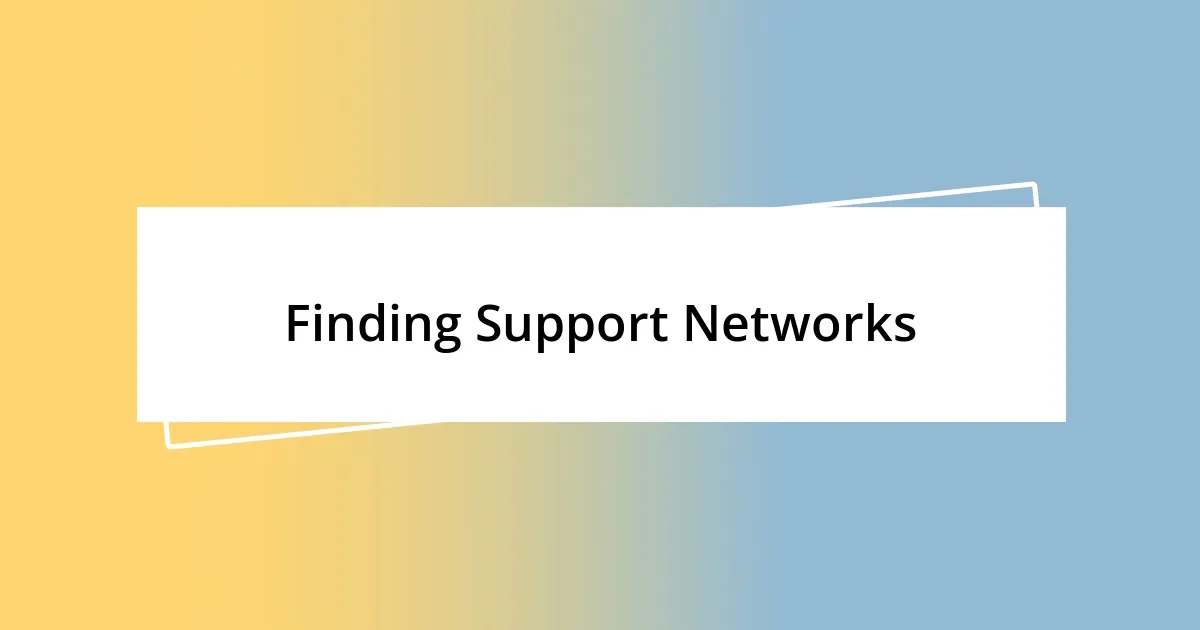Key takeaways:
- Family expectations can inspire or pressure individuals, often rooted in cultural beliefs.
- Open communication and empathy are crucial when discussing personal aspirations with family.
- Setting and maintaining boundaries fosters respect while allowing for personal growth.
- Building support networks enhances confidence and provides validation in navigating family expectations.

Understanding Family Expectations
Family expectations can often feel like a double-edged sword. On one hand, they stem from love and a desire for the best for us, but on the other, they can weigh us down with pressure. I remember feeling overwhelmed when my parents pushed me towards a certain career path, assuming it was the best fit for my skills. Have you ever found yourself in a similar situation?
Often, these expectations are deeply rooted in cultural or generational beliefs, making them hard to challenge. I once had a heartfelt conversation with my grandmother about my choice to pursue a non-traditional job. It was enlightening to see how her aspirations were shaped by her upbringing. What about you? Have your family’s hopes ever clashed with your own dreams?
Taking the time to unpack these expectations can be crucial. I found journaling my thoughts helped me distinguish between what I genuinely wanted and what was imposed on me. Have you considered reflecting on what family expectations mean to you? By confronting these feelings, we can find a balance that honors our family’s wishes while staying true to ourselves.

Recognizing Personal Values
Recognizing my personal values wasn’t an overnight revelation. It took time and introspection, especially when family expectations loomed large. I vividly recall standing in my childhood bedroom, surrounded by trophies that represented my family’s ambitions for me, yet feeling a nagging sense of disconnection from those achievements. I realized, through quiet moments of reflection, that my true values focused more on creativity and personal fulfillment rather than accolades.
To help clarify my values, I found it beneficial to identify key aspects that resonated most with me:
- Authenticity: Staying true to myself, even when it felt easier to conform.
- Growth: Valuing experiences that contribute to my personal and professional development.
- Connection: Building meaningful relationships that align with my passions.
- Adventure: Embracing new experiences, which allows me to break free from the mold.
This exploration of my personal values has led me to navigate family expectations with more confidence, allowing me to craft a life that feels right for me.

Communicating Your Needs
Communicating your needs is essential when navigating family expectations. I’ve learned that open dialogue can break down barriers. Once, during a family dinner, I mustered the courage to share my feelings about pursuing a career that aligned with my passions. Surprisingly, it sparked a genuine discussion, revealing unexpressed worries and hopes on both sides. Have you ever tried initiating a conversation with your family about your own needs?
It’s crucial to approach these discussions with empathy. I remember when I explained my decision to switch my major in college; I framed it positively, highlighting how it aligned with my dreams rather than focusing solely on their disappointment. This helped them understand my perspective. Empathy transforms conversations from confrontational to collaborative. How might you express your feelings in a way that invites understanding?
Ultimately, it’s about setting boundaries too. I realized that being clear about my limits doesn’t equate to being ungrateful. When I set specific times for family activities that also included time for myself, my family began to respect my choices more. What boundaries might you need to establish for yourself?
| Communication Method | Emotional Impact |
|---|---|
| Open Dialogue | Fosters understanding and connection |
| Empathetic Expression | Encourages collaboration and reduces conflict |
| Boundary Setting | Promotes respect for personal needs |

Setting Boundaries Effectively
Setting boundaries effectively has been a game changer for me in managing family expectations. I recall a moment when I felt overwhelmed during the holidays; the pressure to conform to family traditions was stifling. I decided to take a step back and express my need for a quieter celebration, focusing more on meaningful connections rather than the usual hustle and bustle. Surprisingly, articulating that need led to everyone being more accommodating, showing me that boundaries could pave the way for understanding.
One lesson I learned was the importance of consistency in boundary setting. I remember a time when I initially let my family’s opinions sway my decisions, which only created confusion. After realizing this, I committed to holding firm on my choices—like when I chose not to attend every family event. By consistently reinforcing my boundaries, I found that my family gradually adapted, and it relieved me of the stress of having to justify my actions repeatedly. Isn’t it interesting how clarity can change the dynamics of your relationships?
Additionally, I’ve discovered that the way I frame my boundaries can make all the difference. Instead of saying, “I can’t do that,” I began saying, “I choose to prioritize my time this way.” This simple shift not only feels more empowering but also invites curiosity and respect rather than defensiveness. Have you considered how the language of boundary setting affects your interactions with family?

Coping with Disappointment
Coping with disappointment is a tough journey, especially when family expectations don’t align with our personal goals. I vividly recall the day I had to tell my parents that I wasn’t pursuing law school as they had always dreamed. Their faces fell, and I felt a pang in my chest. But I recognized that acknowledging my own disappointment in letting them down was the first step in navigating through that moment.
Dealing with disappointment often means finding ways to validate your feelings without dismissing theirs. I remember feeling a mix of sadness and guilt during our conversation. I expressed how hard it was for me to diverge from the path they envisioned while also explaining how I found joy in my own decisions. There’s something cathartic about sharing that emotional dissonance; it’s like peeling back layers of an onion. The more honest we are, the less alone we feel in our struggle. Have you ever sensed that bittersweet combination of wanting to follow your dreams yet wishing for your family’s acceptance?
Sometimes, reframing the narrative helps in coping with disappointment. Instead of framing my career shift as a failure, I started viewing it as an opportunity for growth. I told my family that while I understood their hopes, my passion lay elsewhere. This perspective not only lightened my heart but also allowed them to see my enthusiasm. In moments of disappointment, how could you reshape your story to find empowerment rather than despair?

Finding Support Networks
Finding support networks has been vital in my struggle with family expectations. I remember the first time I reached out to my close friends for guidance. It was surprising how many of them were navigating similar family dilemmas. Sharing stories over coffee not only created a sense of camaraderie but also empowered me to make decisions that felt right for me rather than what others expected.
It’s truly amazing how a solid support network can amplify your confidence. I often turned to online forums and local groups where people openly discussed their experiences. There was something liberating about hearing diverse perspectives; it made me realize I wasn’t alone in my feelings. Discussing my situation with others who truly understood helped me validate my choices and provided new ideas on how to approach difficult family conversations. Have you ever found solace in a community that embraced your struggles?
Another significant experience was joining a workshop focused on personal growth. The connections I formed there were invaluable. Sharing my concerns in such a safe space led me to discover tools and strategies that I hadn’t considered before, transforming how I viewed family interactions. Surrounding myself with uplifting individuals who encouraged authenticity made me feel more empowered to live life on my terms. Isn’t it fascinating how the right environment can shift your perspective so dramatically?

Building Healthy Relationships
Building healthy relationships starts with clear and open communication. I recall a heartfelt conversation with my brother about our family’s expectations, which often felt like an unending pressure cooker. By expressing how their dreams for us sometimes overshadowed our individual aspirations, we created a space where both of us felt heard and understood. Doesn’t it feel refreshing when you can just lay everything on the table and know your feelings won’t be judged?
I also learned that setting boundaries is crucial. I remember a holiday gathering where I gently reminded my relatives that their opinions about my career choices shouldn’t dictate my happiness. It was uncomfortable at first, but asserting my needs helped me regain a sense of control. So, how can setting boundaries help create deeper connections with family, without burning bridges? It’s about finding that balance, ensuring respect flows both ways.
Being empathetic towards each other’s journeys has also been transformative in my relationships. I began to actively listen to my family’s concerns and validate their feelings, which in turn made them more receptive to my perspective. I distinctly remember a moment where my mom shared her worries about my choices amid her traditions. Instead of reacting defensively, I embraced her fears, fostering understanding on both sides. Isn’t it incredible how empathy can bridge even the widest chasms in family dynamics?














